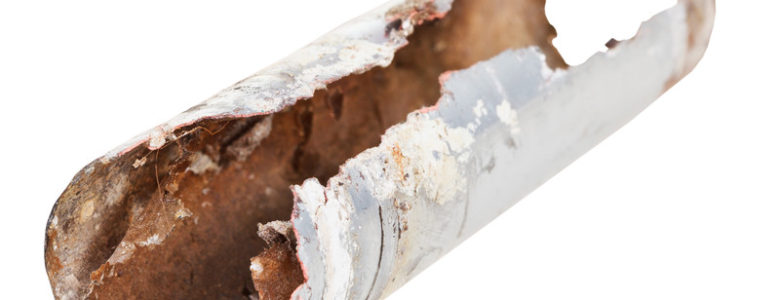All kinds of metals are used in pipes, but the two most common are steel and copper. Unfortunately, both of these types of metal can suffer from corrosion that eats away at the metal and ultimately leads to leaks.
Whether you’re dealing with residential, commercial, or industrial pipes and pipe supports, you want to do all you can to ensure that your infrastructure continues to function properly. Regular inspection and proper maintenance and repair are all a must, but what can you do to prevent pipe corrosion?
It will depend on whether you’re trying to prevent corrosion inside pipes or outside, as well as the type of metal you’re dealing with. Here are a few things you need to know about protecting your pipes against corrosion.
Corrosion Inside Pipes
Whether you have water, effluent, chemicals, or other substances coursing through your pipes, there’s a chance you could suffer corrosion inside piping networks over time. Even water, which seems harmless enough, could carry contaminants that result in corrosion, or the velocity at which it runs through pipes could cause damage over time. Stagnant water is also a concern if pipes aren’t used for extended periods of time.
There are a couple of things you can do to protect the interior of pipes. First and foremost, pipes must be properly coated with protective materials prior to installation. In addition, proper welding and soldering seams must be smooth so as to avoid “burrs” inside pipes that could speed corrosion. You must also use pipes regularly to avoid stagnant fluids.
There’s not a lot you can do after the fact to correct such issues, short of tearing the whole kit and caboodle apart and replacing corroded pipes. Preventive measures are essential to protect against corrosion inside pipes.
Corrosion Outside Pipes
You may have more opportunity to protect against corrosion on the outside of pipes, supposing they’re exposed and you have access. Again, prevention is your best bet. Pipes should be properly coated on the outside to avoid corrosion. You can also add elements like pipe wear pads or pipe saddles to prevent corrosion over time.
These extraneous measures work by bringing dissimilar metals (like steel and zinc, for example) into contact, which protects one metal (the steel pipe) while transferring corrosion to the other. These pipe shoes, saddles, cradles, pads, and so on can be added after the fact, as well, if corrosion on pipes becomes an issue. However, it’s always best to prevent costly and hazardous pipe corrosion from the get-go if you can.



Leave a Reply